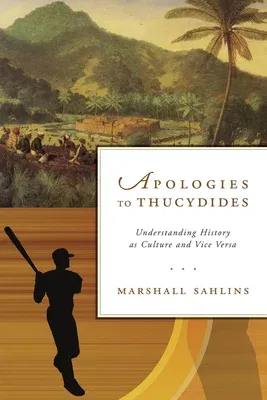Thucydides' classic work on the history of the Peloponnesian War is the
root of Western conceptions of history--including the idea that Western
history is the foundation of everyone else's. Here, Marshall Sahlins
takes on Thucydides and the conceptions of history he wrought with a
groundbreaking new book that shows what a difference an anthropological
concept of culture can make to the writing of history.
Sahlins begins by confronting Thucydides' account of the Peloponnesian
War with an analogous Polynesian War, the fight for the domination of
the Fiji Islands (1843-55) between a great sea power (like Athens) and a
great land power (like Sparta). Sahlins draws parallels between the
conflicts with an eye to their respective systems of power and
sovereignty as well as to Thucydides' alternation between individual
(Pericles, Themistocles) and collective (the Athenians, the Spartans)
actors in the making of history. Characteristic of most histories ever
written, this alternation between the agency of Great Men and collective
entities leads Sahlins to a series of incisive analyses ranging in
subject matter from Bobby Thomson's shot heard round the world for the
1951 Giants to the history-making of Napoleon and certain divine kings
to the brouhaha over Elián Gonzalez. Finally, again departing from
Thucydides, Sahlins considers the relationship between cultural order
and historical contingency through the recounting of a certain royal
assassination that changed the course of Fijian history, a story of
fratricide and war worthy of Shakespeare.
In this most convincing presentation yet of his influential theory of
culture, Sahlins experiments with techniques for mixing rich narrative
with cultural explication in the hope of doing justice at once to the
actions of persons and the customs of people. And he demonstrates the
necessity of taking culture into account in the creation of
history--with apologies to Thucydides, who too often did not.

